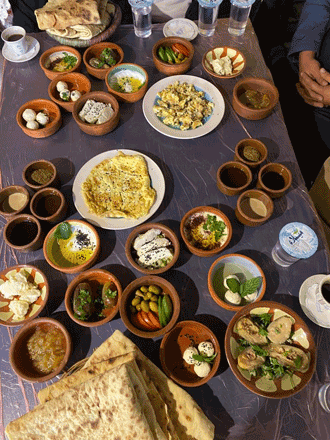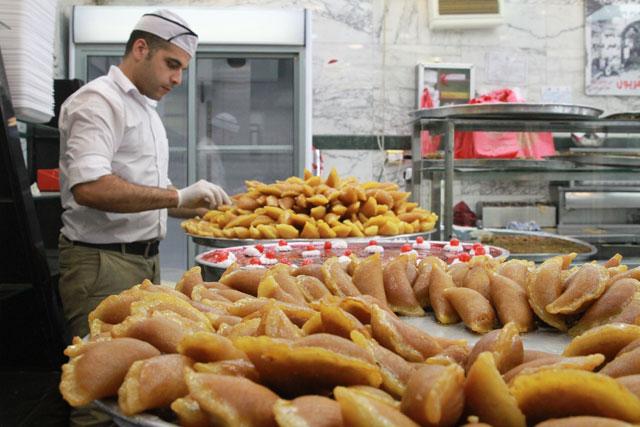You are here
Diabetics urged to watch blood sugar levels during Ramadan
By Suzanna Goussous - May 28,2016 - Last updated at May 28,2016
 AMMAN — As Ramadan is approaching, local organisations and health experts on Saturday convened to give nutrition and health tips to diabetics during the fasting month, expected to start next week.
AMMAN — As Ramadan is approaching, local organisations and health experts on Saturday convened to give nutrition and health tips to diabetics during the fasting month, expected to start next week.
Most people change their daily lifestyles in Ramadan, said the experts, who urged fasters to maintain a balanced diet and control their sugar intake throughout Ramadan.
Sima Kalaldeh, president of Eradeh organisation for children and youths with diabetes, said the event, which was held by Eradeh at Al Ahli Club, is a result of receiving frequent questions from diabetics of all ages before Ramadan begins.
“The event aims at raising people’s awareness and advising diabetics on what to do and what to eat… Ramadan is good for the health and for diabetics who are allowed to fast,” she told The Jordan Times.
“If the allowed rates of sugar intake and the meals are taken seriously during Ramadan, the patient will feel much healthier by the end of the month,” Kalaldeh added.
During Ramadan, the ninth month in the Islamic lunar calendar, Muslims abstain from eating and drinking from dawn to sunset. Consumption of food and beverages in Jordan tends to increase due to the change in eating habits.
Kalaldeh noted that the most important advice offered to diabetics is to test sugar levels in their blood during the day while fasting, and to control unhealthy eating habits.
One of the unhealthiest habits, she said, is going to bed right after iftar, the meal that breaks the fast.
After iftar, patients are urged to drink a lot of water and low-sugar juices and eat meals that are low in carbohydrates, the expert added.
“Start the iftar meal with water, soup, salad, low-carbohydrate meals, some protein and limit the dessert portion as you eat,” she explained, advising against consuming everything at once.
Iman Abida, the vice president of Eradeh, said the way people control their sugar levels in Ramadan differs from other months.
“It depends on the type of diabetes, lifestyle, age and insulin levels. In Ramadan, juices and desserts are served more often. We are here today to offer alternatives to those unhealthy meals and ways to control the sugar that enters the body,” she said.
Rania Aqeel, the marketing officer at a local bakery, said white bread could be replaced with whole-grain and oil-free products that are healthier and more beneficial.
Bread with oats has around 80 calories, while the regular whole-grain has around 96 calories, according to Aqeel.
Related Articles
AMMAN — To maximise the benefits of fasting during Ramadan, experts are urging people to avoid excess and follow a healthy, balanced diet.&n
AMMAN — As Ramadan begins, many look forward to a month of sugary desserts, but experts suggest modifying these traditional sweets or choosi
AMMAN — As Muslims change their lifestyle and habits during the fasting month of Ramadan, experts advise careful management of sleeping and


















